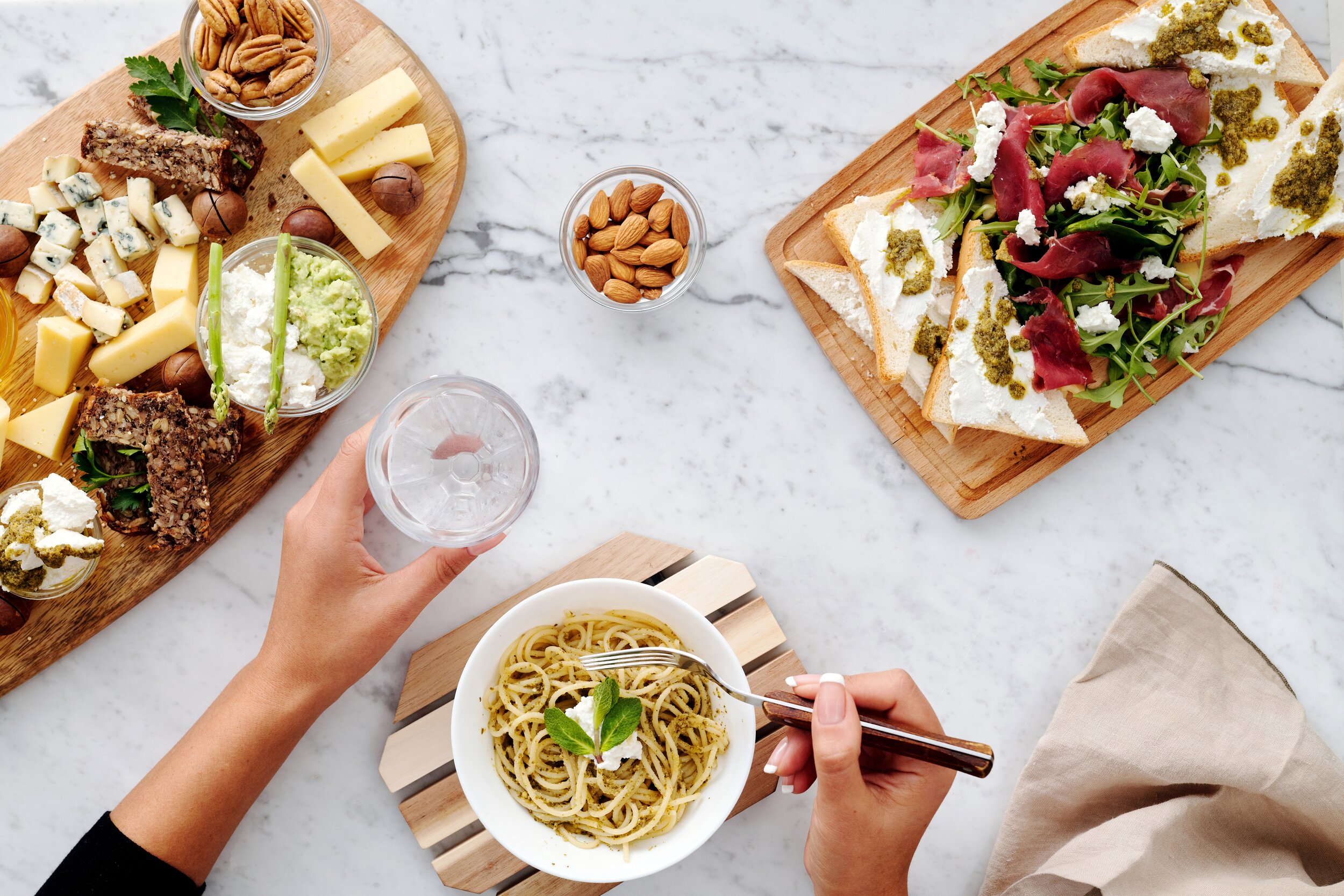How Do You Know if You’re Ready for Gentle Nutrition?
Written by Rachel Mitchell, Nutrition Intern
So you’re on your Intuitive Eating journey and you reach the final principle- “Gentle Nutrition.” But what does this even mean?
What is Gentle Nutrition?
The 10th and final principle of Intuitive Eating is “Honor your Health with Gentle Nutrition.
Evelyn Tribole, MS, RDN, CEDRD-S, the co-founder of the Intuitive Eating movement and book, expands on this more as she says it is to:
“Make food choices that honor your health and taste buds while making you feel well. Remember that you don’t have to eat a perfect diet to be healthy. You will not suddenly get a nutrient deficiency based on one snack, one meal, or one day. It’s what you eat consistently over time that matters – progress not perfection is what counts.”
The reason for its “gentle” nature is because it is about being flexible, forgiving, and balanced as with intuitive eating, nutrition is not meant to be “black or white” or rigid with strict rules. In gentle nutrition, it is all about being flexible and choosing what is best for you and your body.
But why is it the last principle in the book? Doesn’t nutrition matter??
Of course it does! After all, the two co-founders Evelyn Tribole and Elyse Resch are two practicing dietitians. They intentionally placed this principle last as without integrating and practicing all of the other principles in one’s life, it is easy to turn intuitive eating into a rigid set of rules.
Dismantling one’s own biases towards specific foods, breaking down the “black-and-white” thinking around food and physical/mental health, and squashing the food police are all crucial steps to take in order to even begin about thinking about incorporating gentle nutrition into one’s lifestyle. Without disregarding external cues and ffactor around what we should eat and look like, it is almost impossible to turn inward and give our bodies what they are truly asking for.
As such, gentle nutrition is largely about the mind body connection we can make into what feels good, what is satisfying, and what will be positive in your health. It is critical to heal your relationship with your food, mind, and body first, then you start bringing Gentle Nutrition into your life.
Okay now that we’ve talked about this extensively….
How do I practice Gentle Nutrition?
Starting this process is going to be filled with much self-reflection and asking yourself many questions about what feels good for you. You can first start off with an easy question to ask yourself: “What makes my body feel best and I enjoy?”
I must emphasize again that it is very important that you have broken all food rules and judgement around them before beginning this process.
Some other questions you can ask yourself:
What am I in the mood for?
What sounds good to me right now?
Do I feel better and more satisfied with more protein at your meal/snack?
Does skipping a snack lead to more nighttime snacking? And how does this feel for me the next day?
This process is all about experimentation and figuring yourself out! Maybe you think something will feel good and it ends up not, and that’s okay! This is how we learn and there is no point in beating yourself up over it. Now you know something new about yourself and that’s what this process is all about!
Don’t forget that Gentle Nutrition looks different for everyone. It will vary depending on how much you would like to engage in nutrition, if at all! Health is complex and nuanced and as such, it is important to consider your mental health too, which may sometimes mean purring nutrition aside for a minute.
Ultimately, gentle nutrition is about practicing nutrition from a place of self-care, not self-control. If it begins to feel challenging to differentiate between practicing it from these two places, you can ask yourself these questions:
Do my behaviors feel balanced and fluid or do they feel restrictive, controlling, and extreme?
What is my ‘why’? Am I enjoying this food? Are there any feelings of guilt or diet mentality around my food choice? Or has my nutrition knowledge guided this choice for my health without sacrificing enjoyment?
If this food choice had no impact on my weight, would I have still made it?
If I don’t incorporate nutrition into my choice, do I feel extreme guilt or shame?
These questions are meant to help you determine your intention behind your food choices. And if this feels challenging, remember you are not alone! It is a very complex and individualistic experience that you don’t have to handle alone if you need more support.
If you would like more support and help breaking this down even further with someone, please do not hesitate to reach out to Rachel Naar, RD, or search for nearby intuitive eating Registered Dietitians to find the best fit for you!


